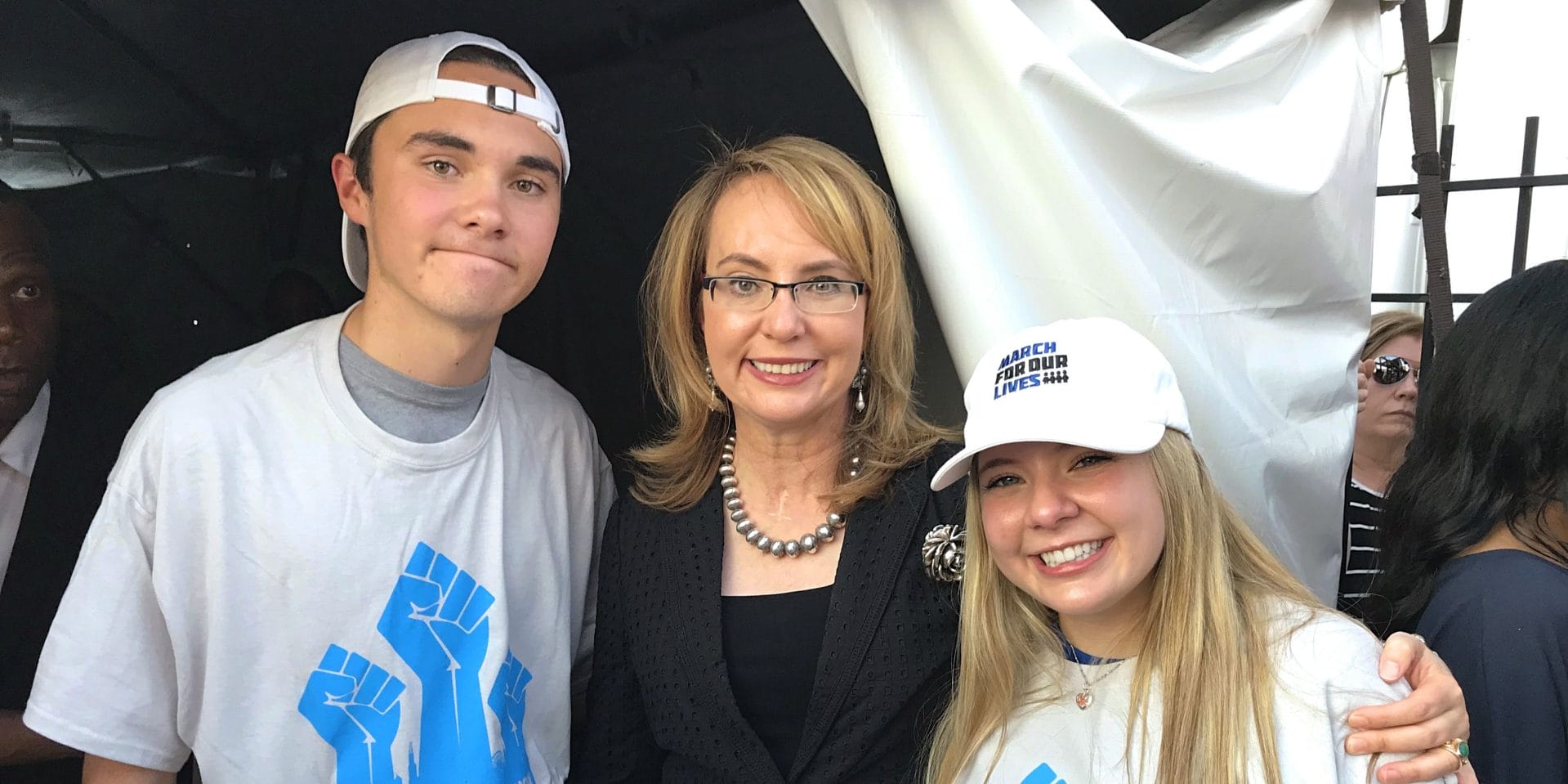
Gabby Giffords Interviews David Hogg
One year after the March For Our Lives, former Congresswoman Gabrielle Giffords chatted with March For Our Lives co-founder and student activist David Hogg about what’s changed over the past year, what’s stayed the same, and what’s next for the movement that swept the globe in 2018.
Gabby: March For Our Lives has accomplished so much over the past year—from driving record voter turnout in the 2018 midterms to helping a background checks bill pass the U.S. House of Representatives. One year later, what’s surprised you the most?
David:After a year in this movement and working with young people across the country, what has surprised me the most is how much young people really do care about politics.
Gabby: I was so inspired by the enthusiasm of the Chicago Peace March last summer. I’ve been really impressed with how March For Our Lives has amplified the voices of students who experience everyday gun violence that doesn’t often get the same media attention as mass shootings. What have you learned through partnering with these other student organizers?
David: One lesson I have learned this year is that listening to and working with other communities is crucial to any future success we have.
Gabby: In the years I’ve spent working on gun violence prevention, I’ve found that it’s not as controversial an issue as it might first seem. All Americans want to see a safer country for their families and communities, even if we disagree on how to get there. When you encounter people who disagree with you, how do you try to find common ground?
David: I find common ground by talking about the things most people (including the people who don’t agree with us) do agree on. Things like funding gun violence research and putting guns under consumer protection. Talking about these things with logic and love really helps to steer the conversation in positive directions.
Gabby: One of the things that inspired me most about the House Judiciary Committee hearing on gun violence last month was the overwhelming number of students—many of them wearing March For Our Lives shirts—who were lined up outside to get in. There were so many students, they had to open an overflow room. Now that H.R. 8 has passed the House, what’s next on your list of priorities?
David: Now that we have gotten the first anti-gun violence bill through the house in my lifetime, it’s time to get it through the Senate. Following that, I believe that we can make funding gun violence research at the Centers for Disease Control and Prevention, the National Institutes of Health, National Institute of Justice, and the National Science Foundation the next major step in the movement.
Gabby: Persevering in the fight to save lives from gun violence is incredibly challenging, especially in the face of inevitable setbacks and obstacles. You and the other March For Our Lives organizers have done such a commendable job not only of persevering day after day, but also of helping keep this issue in the national spotlight. What advice do you have for students activists around the country who are passionate about gun violence prevention?
David: The first thing I tell any student that wants to be involved is register to vote…and vote. The second is to work on political campaigns for candidates that are pro-peace and anti-gun violence, and if students would like to get involved they can go to marchforourlives.com to join or start a chapter. Last but not least, is the importance of taking care of one’s self, because if you can’t take care of yourself you can’t truly to take care of anyone else, let alone change the country.
Gabby: My friend John Lewis once said, “We may not have chosen the time, but the time has chosen us.” In my own work, I’ve drawn courage and inspiration from all the men and women who have challenged injustice and fought to make our country a safer place. Every activist has their own theory on how to make change—what’s yours?
David: Young people have been, and always will be the tipping point on changing social issues. I firmly believe that the best way to create change is to let the youth lead.